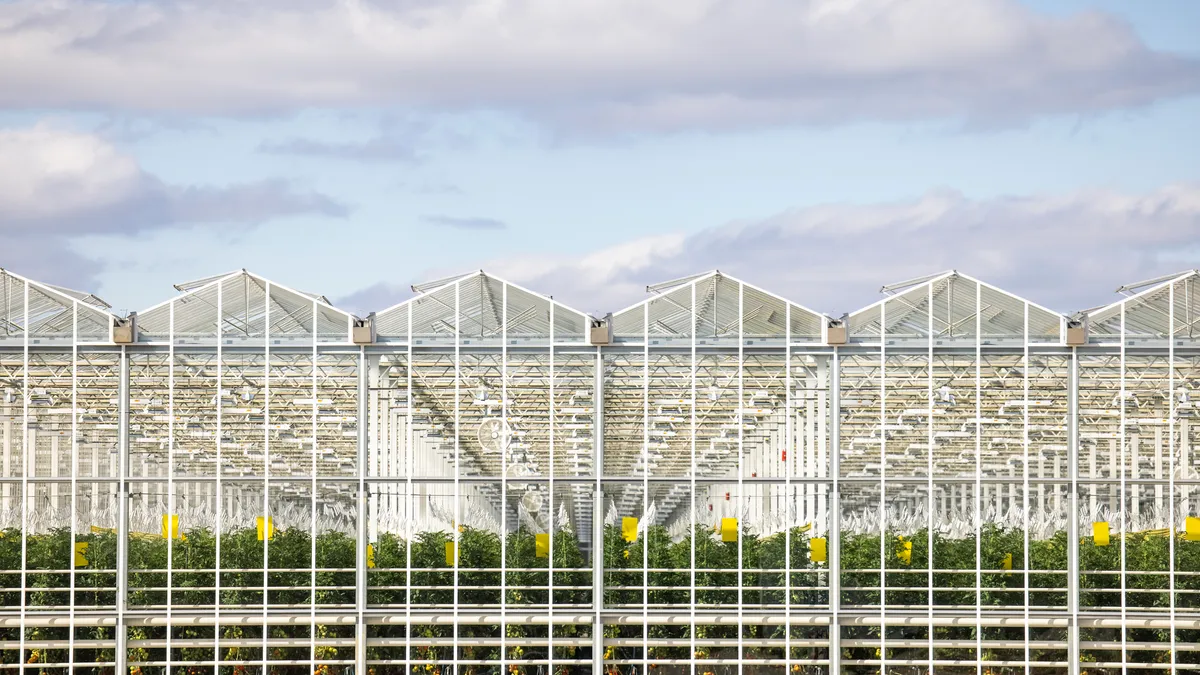Dive Brief:
- Indoor farming company AppHarvest, which drew investments from major names including Martha Stewart and then-author J.D. Vance, filed for bankruptcy, according to a Monday announcement.
- The startup was a leader in the controlled environment agriculture space, opening one of the world's largest indoor farming facilities in late 2020. But lower than expected crop yields and elevated operational costs weighed down profits, its Chief Financial Officer said in a court document.
- The Chapter 11 filing will enable the startup to restructure operations and find a buyer, the release said. AppHarvest's high-tech greenhouses remain operational, and product will continue to flow to grocery chains, restaurants and other partners.
Dive Insight:
With climate change expected to pressure agriculture's ability to produce food at scale, controlled environment agriculture has been presented as a high-tech alternative to conventional growing operations.
But indoor farming companies have struggled to escape the growing pains of their conventional counterparts, including the effects of high costs and the spread of plant disease. AppHarvest's bankruptcy comes a little more than a month after fellow indoor farming company AeroHarvest filed for Chapter 11.
AppHarvest operates four farms across 165 acres in Kentucky, according to the release, and uses a combination of technologies to produce higher crop yields with less water compared to traditional agriculture methods. The startup has also invested in automation, and in 2021 acquired RootAI, which makes robot harvesters for indoor farms.
AppHarvest remained highly reliant on outside investments and was able to successfully complete a series of funding rounds, even naming Stewart and now-U.S. Sen. Vance to its board. However, as economic uncertainty from the pandemic scared off investors, the company struggled to raise additional capital.
Financial constraints came as the company also struggled to ramp up production due to supply chain disruptions and the spread of plant disease. Tomato brown rugose fruit virus had a “dramatic effect” on tomato production at AppHarvest’s flagship facility in Morehead, then-Chief Operating Officer Tony Martin said in a March earnings call. Martin was appointed CEO of AppHarvest July 13.
AppHarvest has secured a $30 million commitment from Equilibrium, its second largest secured creditor, to maintain operations, according to the release.
“The AppHarvest board of directors and executive leadership evaluated several strategic alternatives to maximize value for all stakeholders prior to the Chapter 11 filing,” Martin said in the release. “The Chapter 11 filing provides protection while we work to transition operation of our strategic plan.”











